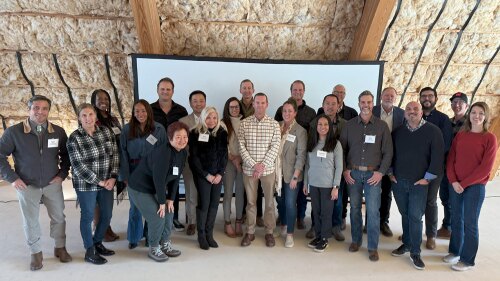ULI, in partnership with Hines, a leading global real estate investment manager, has announced the winner of the 2025 ULI Hines Student Competition Asia Pacific: a multidisciplinary team from CEPT University in Ahmedabad, India. Their proposal, The Active-Shared City, reimagines Hong Kong’s Kai Tak Waterfront as a next-generation ‘sharing city,’ where urban density, shared infrastructure, and community-led design drive innovation, sustainability, and inclusive growth.
The CEPT University team (formerly the Centre for Environmental Planning and Technology) envisions the 16-hectare site surrounding the new Kai Tak Stadium as a vibrant, inclusive, and resilient neighborhood. Inspired by the organic networks of the historic Kowloon Walled City, the proposal weaves together mobility, public space, and shared infrastructure to create a dynamic, people-first ecosystem that is both socially and environmentally sustainable.
“The CEPT University team’s proposal shows how thoughtful design can harness urban density to build resilient, inclusive, and economically vibrant communities,” said Jon Tanaka, Head of Asia Pacific at Hines. “Competitions like this shine a light on the transformative potential of collaboration, empowering the next generation of leaders to shape a more sustainable future. We are proud to support this platform that drives bold ideas and provides a valuable educational experience for all participants.”
At the heart of the CEPT University team’s vision are five pillars of shared systems or ‘sharing cities’, which anchor their approach to connectivity, sustainability, and inclusivity. These include:
- Shared Mobility: A car-free, multi-level system, with pedestrian streets, sky bridges, and underground logistics, that connects key urban zones and integrates with public transit.
- Shared Green Spaces: Terraced parks, rooftop farms, and a waterfront promenade that enhance resilience and well-being, using sponge city principles for climate adaptation.
- Shared Living & Economy: Co-living with innovation hubs and shared amenities that support affordability, inclusivity, and economic self-reliance.
- Shared Culture & Knowledge: A cultural corridor with museums, performance venues, and co-working spaces that foster creativity and lifelong learning.
- Shared Energy & Resources: A zero-carbon district powered by renewables, smart grids, and circular systems for energy and water reuse.
“This year’s winning submission from CEPT University offers a compelling vision for the future of living in high-density cities,” said Alan Beebe, Chief Executive Officer of ULI Asia Pacific. “Their ability to combine financial feasibility with community-first thinking demonstrates what is possible when bold ideas meet grounded execution. Now in its third year in Asia Pacific, this competition offers students an unparalleled opportunity to hone interdisciplinary collaboration and solve complex land use challenges our communities face. We are grateful to the jury for their insightful evaluations and to Hines for their invaluable partnership, which has been instrumental to the success of this competition.”
The CEPT University team—Rishi Kumar N, Pranav Amarnath, Pooja Save, Danish Sikkander PT, and Sriram Soni—presented their proposal at the 2025 ULI Asia Pacific Summit, taking place 26–29 May 2025 in Hong Kong. As part of their prize, the team receives travel and accommodation support, ULI memberships, and the opportunity to engage with global leaders in real estate, planning, and urban innovation.
The ULI Hines Student Competition provides final-year undergraduate and graduate students with the opportunity to collaborate in multidisciplinary teams and engage in a challenging exercise to develop proposals for an existing site in a major city, showcasing responsible, creative, and sustainable land use.
This year’s competition featured 33 teams from 10 markets across the Asia Pacific region. The finalists included teams from CEPT University in India, The University of Melbourne in Australia, and Chulalongkorn University in Thailand. A full gallery of the 2025 finalists’ submissions is available online here. For additional information about the ULI Hines Student Competition Asia Pacific, visit this link.





